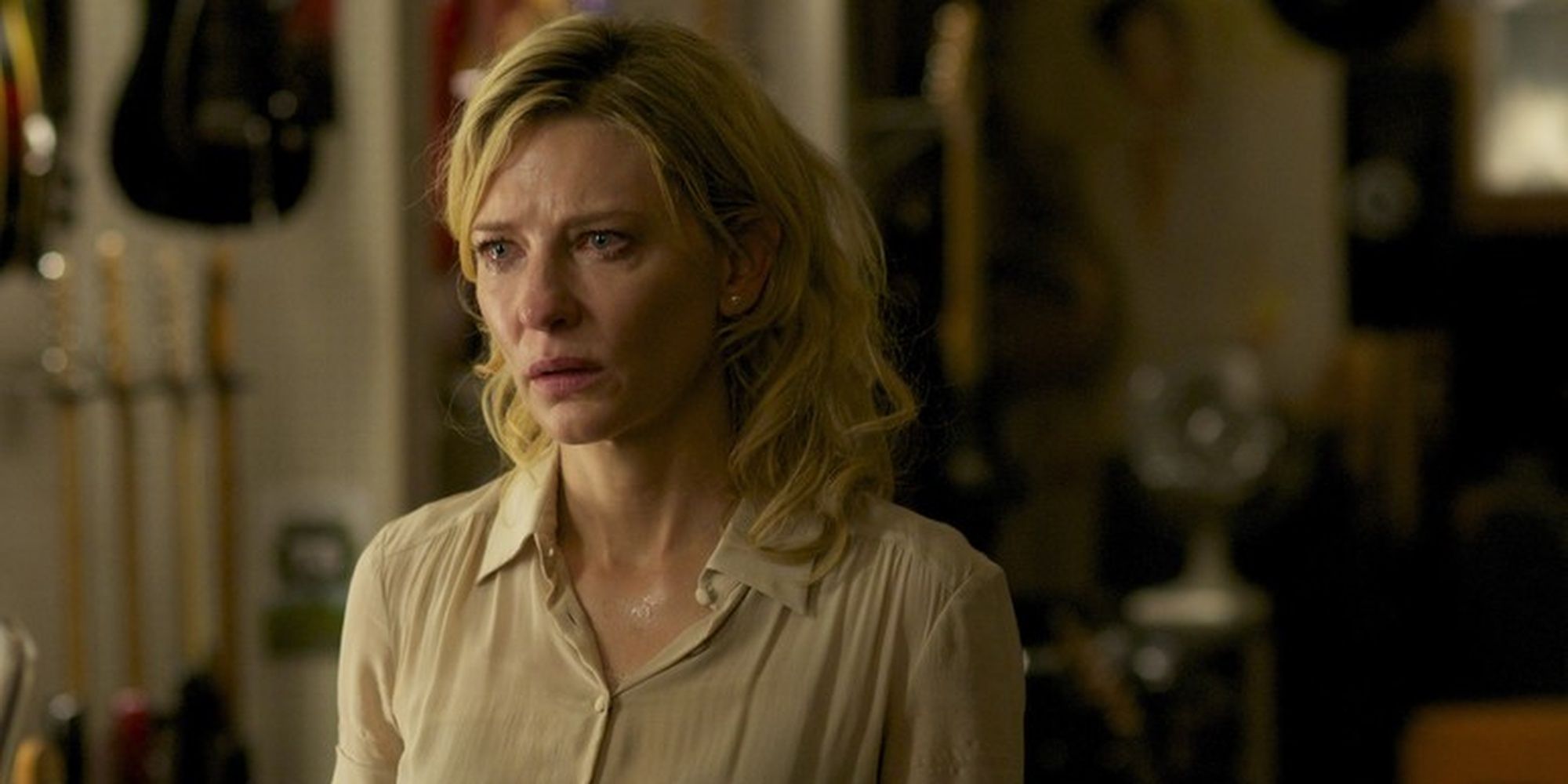Cate Blanchett routinely delivers dynamic, multifaceted performances and doesn’t seem to give any indication that she’s slowing down. It’s not a shock that she’s incredible in Tár. Her character Lydia is so diabolical and vulnerable that this performance easily ranks among the greatest anti-heroes in modern cinema. While Blanchett stands a good chance of winning the Academy Award for Best Actress in March, she won her previous leading trophy for a character even more reprehensible than Lydia in Blue Jasmine.
What Is 'Blue Jasmine' About?
Blue Jasmine follows the divorced woman Jasmine Francis (Blanchett) as she attempts to rebuild her life following her husband Hal’s (Alec Baldwin) imprisonment for money laundering. Jasmine relocates from New York to San Francisco to stay with her sister, Ginger (Sally Hawkins), who agrees to take care of her during her recovery. Although Ginger’s boyfriend Chili (Bobby Cannavale) has his concerns, Jasmine proceeds to wreak havoc on their lives as she takes without any sign of gratitude.
One of the reasons Lydia is such a fascinating character in Todd Field’s modern masterpiece is that she’s emotionally impenetrable to the point of being opaque. Lydia separates her professional demeanor from her private affairs, and her struggles come when the two become impossibly intertwined. However, Jasmine is even more infuriating due to her guise of empathy. If Lydia always wants to be the center of attention, Jasmine tries her best to seem like a victim, despite endangering the livelihood of everyone she interacts with. Lydia is a character that refuses to apologize, but Jasmine doesn’t just ignore her own issues. She asks for sympathy.
Jasmine Refuses to Accept Her Consequences
The first signs of Jasmine’s subverted vision of reality come in the first few moments of Blue Jasmine. Despite claiming to be on a soul-searching path to improve her life, Jasmine decides to take first class tickets during her flight to San Francisco. It’s clear that Ginger is only doing this out of empathy, as it’s evident from her messy apartment household that she is not wealthy at all. Both Ginger and Chili work time-consuming, grueling day jobs and have very little to spend on luxuries; Jasmine should show nothing but gratitude, but instead she only offers casually rude remarks about her poor living conditions.
Jasmine is still processing her shock upon her husband’s arrest. It’s obviously a traumatizing situation, but Jasmine’s attitude doesn’t suggest she’s interested in healing at all. In fact, her desire to remain a part of the upper class is tied to her husband’s wealth, and she’s not ready to admit that anything has changed in her life. While clearly she should have recognized that she needed help when she began drinking heavily and suffering nervous breakdowns, she only seeks refuge with her sister out of desperation. Ginger is forced to intervene in the situation because Jasmine will self-implode otherwise.
Jasmine is even more detestable than Lydia because of her deliberate animosity towards those that she’s jealous of. She actively tries to create tension between Chili and Ginger, forcing her sister to question the nature of their relationship. By pointing out Chili’s obvious faults, Jasmine exacerbates the previous arguments between the two, as Chili had never wanted Jasmine there in the first place. Instead of trying to save her sister’s relationship, Jasmine is so upset about her own failed marriage that she willfully tries to demolish Ginger’s.
'Blue Jasmine' Is All About Living a False Narrative
Jasmine’s self-denial goes to even greater lengths when she drags Ginger along to a high class party, knowing she will be out of place. Despite only taking basic classes in interior design, Jasmine claims to be an accomplished professional in order to start a romantic fling with the charismatic diplomat Dwight Westlake (Peter Sarsgaard). Jasmine hasn’t adjusted her expectations at all upon the diminishment of her wealth, and so she fits right in at the party among pretentious snobs. In this plastic group, her story of being married to a now deceased surgeon makes perfect sense.
As Jasmine’s mental state spirals out of control even further, she proceeds to drag everyone else down with her. The events at the party lead Ginger to start a relationship with the manipulative single man Al (Louis C.K.), whose admittance that he’s actually married drives her to run back to Chili with forgiveness. Dwight isn’t the type of character we’re meant to sympathize with, but upon his discovery of Jasmine’s lies, it’s hard not to feel bad for him a little bit. He now faces public humiliation and personal heartbreak because he fell in love with this character that Jasmine had created.
As we learn later on, Jasmine has dug her own grave with the way she treated her family. It was Jasmine that exposed Hal to the FBI, yet she continues to live off of the privileges that his crimes had given them. This is revealed in one of the most devastating scenes in the film, in which Jasmine seeks to make amends with her young son Danny (Alden Ehrenreich). Even though it’s Jasmine whose been claiming to be the victim, Danny is left confused, embarrassed, and angry upon his father’s suicide. All the time that Jasmine has spent luxuriating has been while she was neglecting her own struggling child.
There’s something consistent, and even slightly admirable about how Lydia holds on to her persona throughout Tár; since she won’t acknowledge her behavior, she’ll be the one that has to face the consequences. However, Jasmine is clinging on to the past with no regard for those she has hurt. In fact, she mutters and talks to herself throughout the film in a state of paranoia. It’s ironic that at the end, she’s left muttering and deluding herself once more; even though it pains us to admit it, we almost feel sorry for her.



